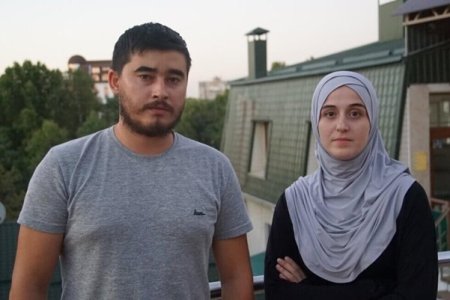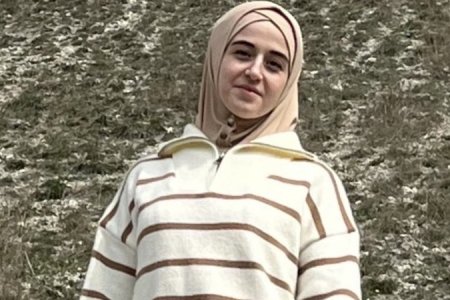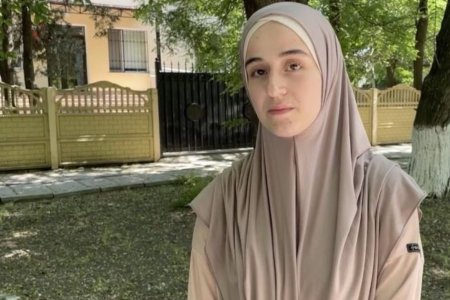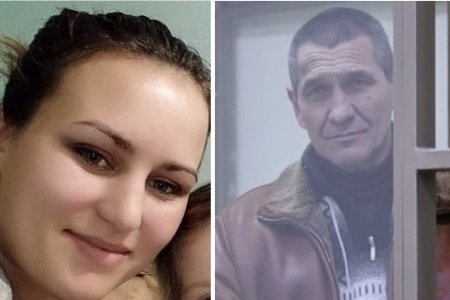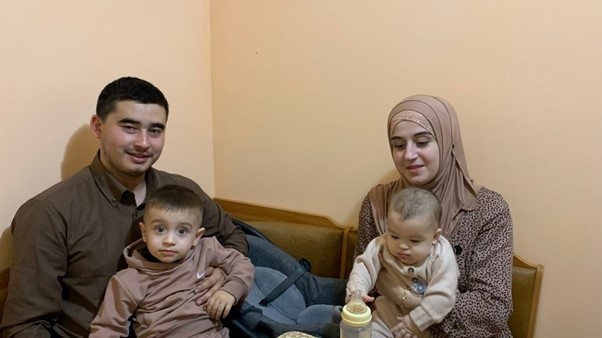
One particularly unpleasant aspect of the current Russian regime’s reinstatement of Soviet denunciations is its use of criminal prosecution and even a prison sentence for failing to report people to the FSB [Russian security service]. It is using the relevant article of its criminal code as a weapon of persecution in occupied Crimea, with the victim this time 25-year-old Emine Zekeryaeva. It is to be hoped that the Russian occupation regime will stop short of trying to imprison a mother of two small children, however the terror tactics thus far used against the young Crimean Tatar and her family make it difficult to exclude any outcome.
Crimean Solidarity reported on 9 November that Emine Zekeryaeva had received a summons for questioning from occupation ‘police’ senior investigator Liubov Shlyakhova. The letter informed her that criminal proceedings had been initiated under Article 205.6 of Russia’s criminal code (which claims to punish for something termed “failure to report a crime” and which can result in up to one year imprisonment.
There was no obvious crime to report, with Emine merely accused of not having denounced another Ukrainian citizen with whom Emine has spoken via the social network VKontakte seven years earlier, in 2016. The woman in question had gone to Syria and had tried to get Emine to also go. Emine had not only refused but had also tried to persuade the woman to return from Syria. Russia is now claiming that the woman in Syria was a member of “an armed formation whose aims are against the interests of the Russian Federation” which is illegally occupying Crimea.
Lawyer Emil Kurbedinov believes that the FSB and other enforcement bodies are using such criminal prosecutions of ordinary citizens as a method for instilling the practice of denunciations in occupied Crimea. “So that citizens simply carry out the FSB’s operational work and inform of any suspicious fact, of any conversation concerning the FSB’s sphere of investigation.” Kurbedinov is scathing also about the article of the criminal code which is written in vague language making it particularly difficult for the defence in such cases. There are, of course, cases where real crimes are being planned, where hostages have been seized or a bomb planted, and where failure to report this really does make a person an accomplice to the crime. The present situation is nothing of the kind. He stresses that seven years ago, Emine Zekeryaeva had no idea that the conversation on VKontakte could form part of a criminal prosecution. The situation is particularly disturbing since Russia needs to first prove the ‘guilt’ of the Ukrainian national with whom Emine had the conversation. “A verdict with respect to the person Emine corresponded with needs to have come into force, and only then can one say whether a crime has taken place.” There is, in fact, nothing to even suggest that the other person has even been informed of the charges, let alone tried. Emine on her part totally rejects the charges and believes that this is still further persecution and intimidation of Crimean Tatars and Crimean Muslims, demonstrating that they can simply come up with any kind of criminal charges after seven years and without any proof. Emine also notes that she has now learned that the criminal proceedings were, in fact, initiated two months ago, in August. She was not informed for over two months, and was, on the contrary, told in August that she was ‘a witness’ in the FSB’s ‘case.
As reported, very early on 7 August this year, the FSB began violently banging on the door of the home that Emine Zekeryaeva shares with her husband Asan Zekeryaev and their two children. Asan was at home alone, as Emine was at her parents, with the children. He had managed to text a relative explaining that the FSB were trying to burst in before all contact with him was lost. By the time the relatives got to the house, Asan had been taken away.
Asan Zekeryaev is the nephew of political prisoner Leman Zekeryaev and was one of 33 Crimean Tatars who were detained on 25 January 2023 while simply trying to show support for his uncle and the other men arrested with him. Initially, therefore, it had seemed obvious that Asan was the target.
It later became clear that the FSB had, in fact, been targeting Emine Zekeryaeva and turned up around two hours later at her parents’ home. They forced her and her children into their car and drove them back to their home in Stary Krym, with Asan held in another car and not allowed to be with them. On arrival, they began a search which lasted around two hours with lawyer Edem Semedlyaev illegally prevented from being present.
Having found nothing, the FSB then demanded that Emine go with them to the FSB officers for interrogation, with Asan insisting on accompanying her, while relatives looked after the children. Emine was duly shown the conversation from 2016 on a page on the social network VKontakte that Emine has long since deleted. Even then her request for her lawyer to be present was ignored.
She was convinced then and remains adamant now that all of this is about intimidation, with the charges a mere pretext. Emine was only released in the evening of 7 August. Then on 5 September, she received two phone calls from a person who claimed to be from the FSB, and to have been present during the search, but refused to identify himself. He demanded that she come to the Investigative Committee in Dzhankoi, and began threatening to simply come and take her away after she quite legitimately asked for a formal summons and said that she wished to consult with a lawyer.
There are no grounds for expecting a fair ‘trial’ in occupied Crimea, with the main question being whether the occupation regime uses subservient ‘courts’ to impose a steep fine or passes a one-year sentence over an innocuous conversation on social media over seven years ago.
